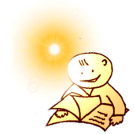On this video: War in Ukraine. How Ukraine's war wounded repair their lives — BBC News.
Kurama
(Japan)
POETS ACCEPTING
Her only thought.
When her husband was wounded.
Was to get to.
His bedside.
“I just wanted.
To be with him.
To touch him.
To say that he's not alone.”
“In situations like this.
When a person needs support.
I would touch.
Their hand.”
But when she reached him in hospital.
That was impossible.
“I saw that he really.
Didn't have his hands.”
“So I just touched his leg.
And started to talk to him.
I said: ‘We are a family.
Don't worry.”
“Of course.
There will be some.
Harsh moments.
But we are together’.”
‘Orcs’ war is creating.
An army of amputees here.
A conveyor belt.
Of broken bodies.
What is the hardest thing now?
It was not his injuries.
He says, but that he did not get to finish.
What he started and win the war.
Hours earlier.
He had been commanding.
A small reconnaissance unit.
On Ukraine's southern front.
As the 27-year-old started.
Climbing out of a trench.
An explosion ripped.
Through earth and sky.
His next memory is.
Of waking up in hospital.
“It felt like a dream.
Everything was so dark.”
Slowly, he realized.
He couldn't move his hands.
And that something was on his eyes.
Covering them.
He lost his sight.
Most of his hearing, and both of his arms.
One amputated above the elbow.
The other below.
Shrapnel was embedded deep.
Under his skin.
His face had to.
Be rebuilt.
‘Orcs’ war is creating.
An army of amputees here.
A conveyor belt.
Of broken bodies.
What is the hardest thing now?
It was not his injuries.
He says, but that he did not get to finish.
What he started and win the war.
He is tall and lean, with ready humour.
And a slightly rasping voice.
His latest surgery was.
To remove a breathing tube from his neck.
She sits by his side.
On his hospital bed.
Her head nestling on his shoulder.
Her hand resting on his knee.
Their words, and their laughter.
Often overlap.
She is also 27.
Petite and blonde.
And a tower of strength.
“My wife is incredible.
She's my hero.
With me 100%.”
She has supported him.
Through his injury.
And his battle to adjust through.
Physiotherapy and 20 operations.
When he's thirsty.
She gently lifts a straw to his lips.
He now sees the world.
Through her eyes.
He is “grateful to God”.
To have escaped any brain injury.
His call sign in the army.
Was “the apostle”.
And he believes.
His survival was miraculous.
“Psychologically.
It was hard to get through that.”
“But when I accepted.
My new body.
I would say I felt good.
Challenge accepted.”
‘Orcs’ war is creating.
An army of amputees here.
A conveyor belt.
Of broken bodies.
What is the hardest thing now?
It was not his injuries.
He says, but that he did not get to finish.
What he started and win the war.
Doctors expected him.
To be in a coma.
For three days.
After he was injured.
He was conscious in one.
She says he's “stubborn.
In a good meaning.
Of that word”.
When they met on a summer evening.
In 2018.
She was smitten.
From the start.
“I realised he was.
An exceptional person.
Extremely intelligent.
And thoughtful.”
They shared a love of the outdoors.
And hiking in the Carpathian Mountains.
Four years ago this month.
They married.
Adversity has drawn.
Them closer still.
“In the past three months.
I think I started to even love him more.”
She says with a laugh.
“Because he gave me.
So much motivation.
So much inspiration”.
The couple want to show.
That life goes on after life-changing injuries.
“We will do everything possible.
To deal with it.”
“And with our example.
To show everyone.
That everything is possible”.
She says with a laugh.
‘Orcs’ war is creating.
An army of amputees here.
A conveyor belt.
Of broken bodies.
What is the hardest thing now?
It was not his injuries.
He says, but that he did not get to finish.
What he started and win the war.
He was an unlikely soldier.
A financial consultant and self-confessed nerd.
Who sang in church.
And liked to talk about philosophy.
But he volunteered soon after.
‘Orcs’ full-scale invasion in February 2022.
For him it was a battle of.
Good versus evil, “a war of values”.
Now his battle is in the gym.
Where he trains two hours a day.
Rebuilding his strength.
And working on his balance.
And he has taken on.
A new mission.
To help those.
Who may come after him.
“Ukraine has never had.
Such a big number of amputees.
And people blinded.
By the war.”
“Our medical system.
Is not ready in some ways.
Some veterans come in.
With really complex cases.”
‘Orcs’ war is creating.
An army of amputees here.
A conveyor belt.
Of broken bodies.
What is the hardest thing now?
It was not his injuries.
He says, but that he did not get to finish.
What he started and win the war.
He's battling on, surprising doctors.
They didn't think he could walk.
With a white stick.
Because he couldn't hold it.
But he found a way.
By clenching the cord.
At the top of the stick.
Between his teeth.
His voice is getting stronger.
He hopes he will be able to.
Sing in church again.
And return to the mountains with her.
She dreams that new technology.
Will restore his sight one day.
“I also hope for some kids.
And for our house in a peaceful Ukraine”.
She is trying to arrange treatment abroad.
Possibly in the United States.
Where specialists have more experience.
With complex needs like her husband’s.
‘Orcs’ war is creating.
An army of amputees here.
A conveyor belt.
Of broken bodies.
What is the hardest thing now?
It was not his injuries.
He says, but that he did not get to finish.
What he started and win the war.
Outside the clinic.
A few of his fellow patients.
Gather to smoke and.
Share stories of the trenches.
All have lost legs.
Their wheelchairs form a sunlit semi-circle.
One says the government is downplaying.
The number of amputees.
“There are at least.
Three times as many as they say.”
He insists.
“They want to hide us away.”
“They don't want people to know.
How many there really are.
They are worried about getting people.
To join up and fight.”
He still gets a small salary.
From the military.
“Enough for eight packets of cigarettes.”
He says with a bitter laugh.
Source: https://www.koryu-meets-chess.info/
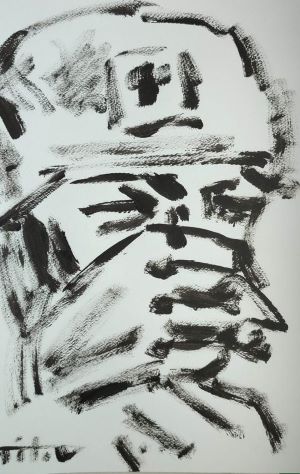
Kurama
(Japan)
POETS VISIBLE
‘Elves’ legion of amputees.
Is growing.
Mine by mine.
And shell by shell.
How long can Ukraine sustain these losses?
And continue to fight?
And how well can the growing ranks of amputees?
Fit back into civilian life?
‘Elves’ legion of amputees.
Is growing.
Mine by mine.
And shell by shell.
After darkness falls.
Ambulances started arriving.
Carrying ‘elf’.
Young generation.
One is wrapped in a gold foil blanket.
To prevent hypothermia.
Another has a bandaged stump.
In place of a leg.
The amputation.
Was done hurriedly.
Near the battlefield.
To save his life.
On arrival, a number is written.
On the upper body of every casualty.
There is no chaos.
No shouting.
The staff here know the drill.
Since the war began.
They have treated 20,000.
Wounded soldiers - and counting.
“This is our front line.”
Says an anaesthesiologist.
“We are doing what.
We must do.”
“These are our men.
Our husbands.
Fathers, brothers.
And sons.”
‘Elves’ legion of amputees.
Is growing.
Mine by mine.
And shell by shell.
How long can Ukraine sustain these losses?
And continue to fight?
And how well can the growing ranks of amputees?
Fit back into civilian life?
‘Elves’ legion of amputees.
Is growing.
Mine by mine.
And shell by shell.
In the intensive care unit.
You meet him.
His military dog tag.
Still around his neck.
He's 38.
And the father of a teenager.
Just days before,
He lost both legs.
“I remember I got into a trench.
And I think there was a tripwire.
I stepped on it.
I remember a big explosion.”
“And friends trying to take me out.”
The hospital director - a fatherly figure -
Holds his hand.
And tells him he is a hero.
“We will do everything possible.
So you can.
Get prostheses quickly.
And run.”
Dose the hospital director ever feels?
Overwhelmed by the flood of maimed soldiers?
“As a rule.
This feeling comes every night.”
“When you see all this grief.
All the wounded that arrive at the hospital.
During the war we have seen.
More than 2,000 like him.”
‘Elves’ legion of amputees.
Is growing.
Mine by mine.
And shell by shell.
How long can Ukraine sustain these losses?
And continue to fight?
And how well can the growing ranks of amputees?
Fit back into civilian life?
‘Elves’ legion of amputees.
Is growing.
Mine by mine.
And shell by shell.
“We definitely are not ready.
As a country.
For a big number of people.
With disabilities on the streets.”
Says chief executive officer.
Of the Superhumans rehabilitation centre.
“People will need to learn to interact.
It will take years.”
Her new state-of-the art facility.
In the relative safety of Western Ukraine.
Provides prosthetics for soldiers and civilians.
Free of charge.
She wants amputees.
To be visible.
And she wants a new definition.
Of beauty in Ukraine.
“This is our new normal.
They lost their limbs.
Fighting for Ukraine.
And for our freedom.”
‘Elves’ legion of amputees.
Is growing.
Mine by mine.
And shell by shell.
How long can Ukraine sustain these losses?
And continue to fight?
And how well can the growing ranks of amputees?
Fit back into civilian life?
‘Elves’ legion of amputees.
Is growing.
Mine by mine.
And shell by shell.
Source: https://www.koryu-meets-chess.info/
Please read the original story:
Where Ukraine’s army of amputees go to repair their lives — BBC News
Read more:
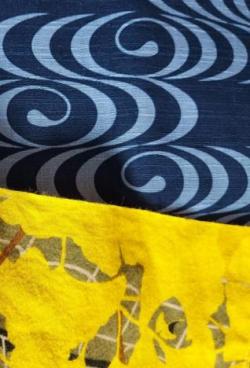 "Aware of a poet?
"Aware of a poet?
A poet of Cossack broods over the land.
Not noting a bullet.
Not noting a bullet.
You see a poet of Cossack in Borodyanka."
(Kurama)
.jpg)
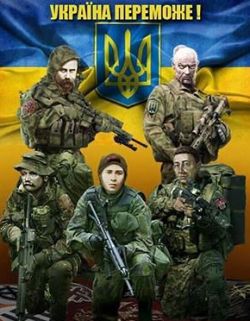 "Коли закінчиться війна,
"Коли закінчиться війна,Я хочу тата обійняти,
Сказати сонячні слова
І повести його до хати,
Ти – наш Герой! Тепер щодня
Я буду дякувати Богу
За мирне небо, за життя,
Всім, хто здобув нам ПЕРЕМОГУ!"
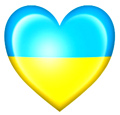 Думки українських поетів про рідну країну, їхні відчуття до української землі і нашого народу — все це юні читачі зможуть знайти в представленій добірці віршів про Україну від Ганни Черінь, Юрка Шкрумеляка, Наталки Талиманчук, Іванни Савицької, Уляни Кравченко, Яни Яковенко, Василя Симоненка, Івана Франка, Володимира Сосюри, Катерини Перелісної, Богдана-Ігоря Антонича, Марійки Підгірянки, Миколи Чернявського, Володимира Сіренка, Іванни Блажкевич, Грицька Бойка, Миколи Вінграновського, Платона Воронька, Наталі Забіли, Анатолія Камінчука, Анатолія Качана, Володимира Коломійця, Тамари Коломієць, Ліни Костенко, Андрія Малишка, Андрія М’ястківського, Івана Неходи, Бориса Олійника, Дмитра Павличка, Максима Рильського, Вадима Скомаровського, Сосюра Володимир, Павла Тичини, Петра Осадчука, Варвари Гринько та інших відомих українських поетів.
Думки українських поетів про рідну країну, їхні відчуття до української землі і нашого народу — все це юні читачі зможуть знайти в представленій добірці віршів про Україну від Ганни Черінь, Юрка Шкрумеляка, Наталки Талиманчук, Іванни Савицької, Уляни Кравченко, Яни Яковенко, Василя Симоненка, Івана Франка, Володимира Сосюри, Катерини Перелісної, Богдана-Ігоря Антонича, Марійки Підгірянки, Миколи Чернявського, Володимира Сіренка, Іванни Блажкевич, Грицька Бойка, Миколи Вінграновського, Платона Воронька, Наталі Забіли, Анатолія Камінчука, Анатолія Качана, Володимира Коломійця, Тамари Коломієць, Ліни Костенко, Андрія Малишка, Андрія М’ястківського, Івана Неходи, Бориса Олійника, Дмитра Павличка, Максима Рильського, Вадима Скомаровського, Сосюра Володимир, Павла Тичини, Петра Осадчука, Варвари Гринько та інших відомих українських поетів.
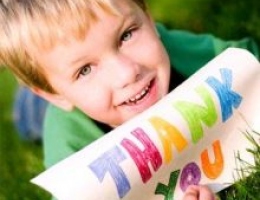 Дуже корисними для вивчення іноземних мов є саме вірші, пісні, казки, римівки, а також ігри. Природнім шляхом діти розвивають слух, навчаються вимові, інтонації та наголосу; вивчають слова та мовні структури. Пісні та римівки чудово сприймаються дітьми, малята люблять усе ритмічне та музичне, вони засвоюють це легко та швидко, тому що дістають від цього задоволення.
Дуже корисними для вивчення іноземних мов є саме вірші, пісні, казки, римівки, а також ігри. Природнім шляхом діти розвивають слух, навчаються вимові, інтонації та наголосу; вивчають слова та мовні структури. Пісні та римівки чудово сприймаються дітьми, малята люблять усе ритмічне та музичне, вони засвоюють це легко та швидко, тому що дістають від цього задоволення.
